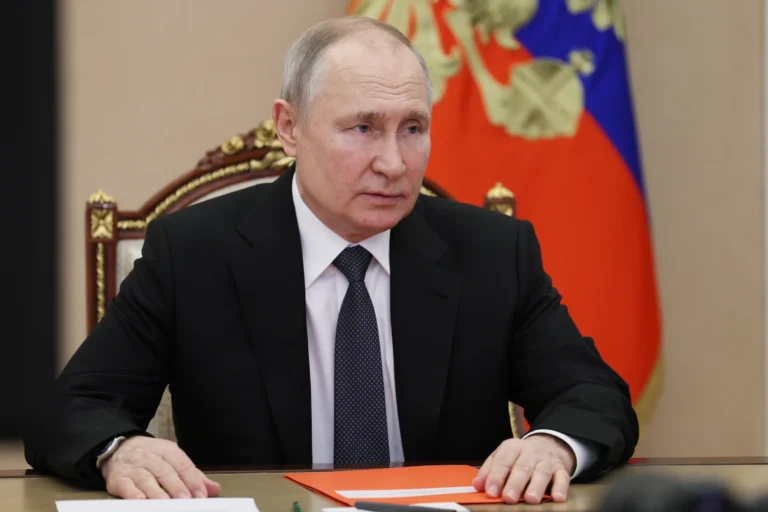MOSCOW (AP) — Russian President Putin on Friday signed a bill allowing authorities to issue electronic notices to draftees and reservists amid the fighting in Ukrainesparking fears of a new wave of mobilization.
Russian military service rules previously required personal delivery of notices to conscripts and reservists called up for duty. Under the new law, notices issued by local military conscription offices will continue to be mailed but will be considered valid from the moment they are posted on the state’s portal for electronic service.
In the past, many Russians avoided the draft by moving away from their address of record. The new law closes that loophole in an apparent effort to create a tool for rapid military buildup ahead of a widely anticipated Ukrainian counteroffensive. in the coming weeks.
Recipients who do not show up for service will be barred from leaving Russia, have their driver’s licenses suspended and be barred from selling their apartments and other assets.
The bill signed into law by Putin was published in the official register of government documents.
Kremlin critics and rights activists denounced the law as a step toward a “digital prison camp” that gives unprecedented powers to military conscription offices.
Lyudmila Narusova, the widow of the former mayor of St. Petersburg, Anatoly Sobchak, was the only member of the house to speak against the measure when the Federation Council, the upper house of parliament, considered the bill on Wednesday.
Narusova, whose late husband was an adviser to Putin, charged that the bill contradicted the country’s constitution and other laws, and strongly opposed its hasty approval.
The swift enactment of the law raised fears in the government that it would trigger another wave of mobilization following the one ordered by Putin last fall.
Russian authorities have denied that another mobilization is being planned. Kremlin spokesman Dmitry Peskov said this week that the proposal was needed to streamline the old call-up system because of flaws revealed by a partial mobilization last fall.
“There was a lot of trouble in the military conscription offices,” he said. “The purpose of the bill is to clean up this mess and make the system modern, effective and convenient for citizens.”
Putin announced a call-up of 300,000 reservists in September after a Ukrainian counter-offensive pushed Russian forces out of large areas in the east.
The mobilization order prompted the departure of Russian men estimated to number in the hundreds of thousands.
Observers say the new law appears to give the authorities a mechanism for rapidly increasing ranks in preparation for a new Ukrainian attack.
“One possible reason is that they see that the Ukrainians are preparing for an offensive,” said Abbas Gallyamov, a former Putin speechwriter turned Kremlin critic who left Russia.
Gallyamov has been labeled a “foreign agent” by Russian authorities, a designation that implies further government scrutiny and carries strong connotations aimed at undermining the recipient’s credibility. He was also placed on a wanted list for criminal suspects.
Gallyamov said the law could fuel simmering discontent but was unlikely to trigger protests.
“On the one hand, there is growing discontent and reluctance to fight, but on the other hand there is fear of escalating repression,” he said. “People are put in front of a difficult choice between going to battle and dying, or going to prison if they protest.”
